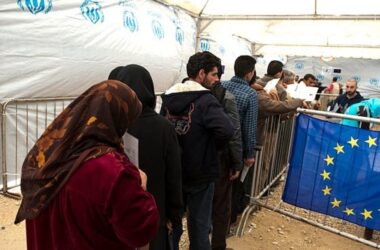In the opening week of U.S. President Trump’s second term, the first group of Haitian migrants was deported, marking a significant shift in immigration policy. Around 7,300 people from various nationalities were deported during this period, according to officials.
The first group of Haitian deportees arrived back in Haiti on Tuesday, landing at Cap-Haïtien airport, which is the only airport still operating for commercial flights in the country.
Mario Montès, one of the deportees, shared his experience, explaining he had been in the U.S. for nearly a year working in Alaska before he was detained by Immigration and Customs Enforcement (ICE) officers in Miami.
“I was on my way to work when immigration officers stopped me and asked me to come to their office. They said there was a new president and some paperwork we needed to re-apply for,” he recalled. “When I arrived, I saw the handcuffs, and they just told me they were sending me back to my country,” he added.
In a related development, El Salvador’s President Nayib Bukele proposed accepting deportees of any nationality from the U.S., even American citizens, into the country’s mega-jail, which reportedly can house up to 40,000 inmates, though rights groups dispute this number.
On Monday evening, U.S. Secretary of State Marco Rubio praised Bukele’s proposal, calling it “the most unprecedented and extraordinary migratory agreement anywhere in the world.”
Rubio described the deal as a “safe third country” agreement, enabling the U.S. to deport non-Salvadoran migrants to El Salvador if they violate U.S. immigration laws.
“He has also offered to take in dangerous criminals currently in U.S. custody, even if they are American citizens or legal residents,” Rubio added.
The deportations are part of a broader series of executive orders signed by Trump since his return to the White House last month. In the first week of his second term, the Department of Homeland Security reported the deportation of approximately 7,300 people from various countries.




